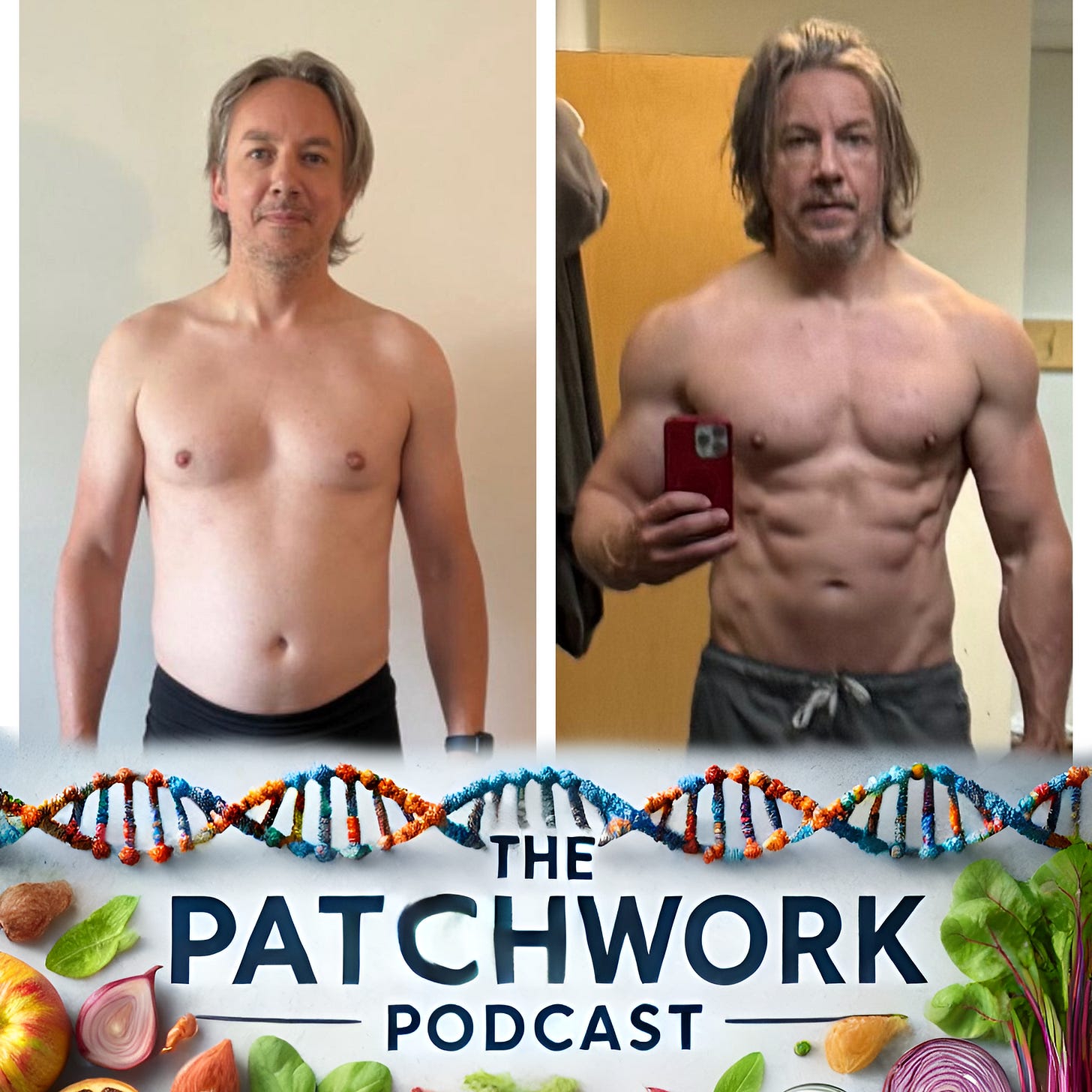In this episode, we talk with Greg about his experience of testosterone replacement therapy and why he does it. He is very knowledgeable in this subject, and he loves to dive deep into the mechanisms, to the point where somebody asked him if they should write if they would write a book with him.
There are many ways to do this incorrectly, so listen to this podcast to learn what you should know before potentially doing it yourself.
We also talk about some exciting things about female hormone replacement therapy, something you probably haven't heard before.
Takeaways (AI Summary)
Testosterone levels can fluctuate seasonally, impacting mood and energy.
TRT is often misunderstood and associated with negative stereotypes.
There is a significant difference between TRT and anabolic steroid use.
Female hormone replacement therapy is more complex than male.
Lifestyle factors like sleep and nutrition greatly affect hormone levels.
Regular blood work is essential for monitoring hormone levels.
Understanding the hormone cascade is crucial for hormone health.
Optimized testosterone can lead to improved physical and mental health.
There are risks associated with TRT that need to be managed.
The benefits of optimized testosterone include better mood, libido, and muscle mass.
Testosterone can convert to estrogen, affecting mood and health. It is something to watch out for.
Frequent smaller injections may help manage estrogen conversion.
Different delivery methods for testosterone have varying effects.
Mood issues can arise from high testosterone and estrogen levels.
TRT can improve body composition and mental health.
Diet impacts lipid profiles and overall hormonal health.
Anabolic steroids are often used without sufficient research.
Finding a knowledgeable provider is crucial for safe TRT.
Monitoring hormone levels is essential for effective treatment.
Stigma around TRT can hinder access to necessary care.
Chapters (AI Made)
00:00 Introduction to Hormone Optimization
01:18 Greg's Journey with Testosterone
04:21 Understanding Seasonal Affective Disorder and Testosterone
06:55 Myths and Stigmas Surrounding TRT
09:15 Research Gaps in Hormone Replacement Therapy
11:18 Complexities of Female Hormone Replacement
14:05 Innovations in Women's Hormone Therapy
16:27 The Importance of Comprehensive Testing
19:24 Concerns and Risks of TRT
22:16 Navigating Fertility and Hormone Therapy
24:54 Understanding Hormonal Interactions and Lifestyle Factors
29:25 Nutritional Factors Influencing Hormone Production
30:39 The Importance of Sleep for Hormonal Health
32:51 Personal Experiences with Hormonal Imbalance
35:43 The Role of Vitamin D and Nutrient Deficiencies
37:36 The Dangers of Aggressive Dieting and Nutritional Deficiencies
38:26 Understanding Testosterone and Its Effects
41:09 Benefits of Optimal Testosterone Levels
44:41 The Science of Testosterone Administration
47:09 Risks and Considerations of Testosterone Therapy
51:17 The Broader Health Implications of Testosterone
52:49 Dietary Considerations for Hormonal Health
54:56 Exploring Anabolic Steroids and Their Effects
57:00 Understanding Testosterone Therapy
01:00:40 Navigating the Healthcare System for TRT
01:04:24 Dosing and Individual Responses to Testosterone
01:08:09 Testing and Monitoring Hormone Levels
01:11:56 Interpreting Hormone Ranges and Their Implications
01:18:56 Medical Disclaimer














